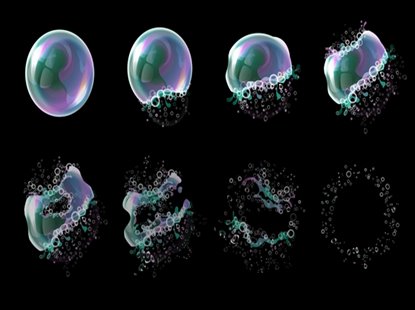The Application of Defoamers in the Pulp and Paper Industry
The Application of Defoamers in the Pulp and Paper Industry
Blog Article
The Duty of Defoamers in Enhancing Product Top Quality and Efficiency
In various producing procedures, the presence of foam can significantly impede product top quality and functional performance. Defoamers work as crucial additives that minimize this issue, ensuring smoother production workflows while improving the aesthetic and functional characteristics of the end products (defoamers). Their application spans a wide range of markets, from food and drink to pharmaceuticals, where uniformity and dependability are paramount. The selection of the suitable defoamer can be essential to achieving ideal results, increasing important questions about formulation compatibility and efficiency metrics that warrant more expedition.
Understanding Defoamers
Comprehending the role of defoamers is necessary for keeping item quality across different sectors. Defoamers are chemical ingredients created to prevent the development and decrease of foam in liquid systems, which can adversely influence procedures such as blending, filling up, and surface stress. Foaming can lead to ineffectiveness, product problems, and compromised visual allure, making defoamers an important element in manufacturing operations.
In industrial applications, defoamers help to enhance product uniformity and stability. As an example, in the paint and coatings market, foam can disrupt the application procedure and the last coating. In a similar way, in food and drink manufacturing, extreme foam can prevent bottling and packaging efficiency (defoamers). The efficient use defoamers not just guarantees smoother manufacturing processes however also adds to remarkable item performance.
Additionally, the option and formulation of a defoamer must align with specific application needs, such as compatibility with other ingredients, efficiency under varying temperature level and pH conditions, and prospective regulative constraints. Inevitably, comprehending defoamers' functions and their importance in numerous formulations is critical for enhancing manufacturing and making sure the highest high quality end items.
Sorts Of Defoamers
Defoamers can be classified into a number of kinds based upon their make-up and mechanism of activity. The primary types consist of silicone-based, non-silicone natural, and inorganic defoamers.
Silicone-based defoamers are amongst the most reliable, mainly because of their capacity to spread out rapidly on the fluid surface and interrupt foam development. Their one-of-a-kind chemical framework permits premium stability, making them appropriate for high-temperature applications and atmospheres with differing pH degrees.
Non-silicone organic defoamers, typically composed of fatty acids or all-natural oils, are valued for their biodegradability and lower toxicity. These are normally made use of in food and beverage applications where safety and security and ecological impact are extremely important.
Not natural defoamers, that include substances like talc or calcium carbonate, act by enhancing the thickness of the fluid, therefore minimizing foam stability. They are commonly utilized in commercial processes where compatibility with other products is not a worry.
Each type of defoamer has unique benefits and restrictions, permitting customized options relying on the details lathering concerns run into in various applications. Recognizing these differences is critical for maximizing performance and attaining wanted item high quality.
Applications Throughout Industries
Many industries take advantage of defoamers to boost product high quality and operational performance. In the food and drink field, defoamers are important in processes such as brewing and dairy products manufacturing to stop foam formation, which can bring about ineffectiveness and item variance. By managing foam, producers can make sure much better return and a much more uniform item.
In the pharmaceutical sector, defoamers play an important duty in the formula of liquid medicines, where excessive foam can impede blending and precise application. Their use helps keep the stability of the solutions and facilitates smoother manufacturing procedures.
The paint and finishings market likewise counts on defoamers to boost the performance of items throughout application. By minimizing foam, these click to read more additives make certain a smoother surface and boost the visual top qualities of the last product.

Advantages of Making Use Of Defoamers
While the application of defoamers differs across markets, their benefits regularly boost item quality and procedure effectiveness. One substantial benefit is the reduction of foam development throughout making processes, which can or else bring about manufacturing hold-ups and variances in item quality. By reducing foam, defoamers make it possible for a smoother flow of materials, helping with more efficient procedures and lowering the possibility of devices breakdowns.
Additionally, using defoamers can enhance the look and structure of end products. In industries such as finishings, paints, and food handling, excessive foam can compromise the aesthetic aesthetic appeals and overall quality, while the proper defoamer application guarantees a consistent finish and desirable characteristics. Defoamers can contribute to cost savings by lowering waste during manufacturing and enhancing the use of raw products.

Selecting the Right Defoamer
Choosing the appropriate defoamer is crucial for maximizing production procedures and guaranteeing product high quality. The option of defoamer affects not only the efficiency of foam control however likewise the total efficiency qualities of the last item. Factors to consider consist of the kind of application, the chemistry of the formulation, and the environmental conditions under which the product go to this website will be utilized.
Different sectors may call for details defoamer kinds, such as silicone-based, natural, or polymeric defoamers. Understanding the compatibility of the defoamer with hop over to these guys the key ingredients is necessary to prevent damaging reactions that could compromise item honesty. In addition, the defoamer's efficiency in different temperature levels and pH degrees should be examined to ensure regular performance.
Evaluating the defoamer in small applications can offer useful insights into its performance and suitability. Factor to consider of governing compliance, particularly in food, drugs, and cosmetics, is paramount in selecting a defoamer. Ultimately, a complete analysis of these variables will lead to the choice of a defoamer that not just manages foam effectively but also enhances the top quality and performance of the end product.
Conclusion

In verdict, defoamers are essential additives that substantially improve item top quality and efficiency throughout various industries. The strategic option and application of defoamers lead to set you back savings, enhanced resource usage, and raised customer complete satisfaction.
Frothing can lead to inadequacies, item defects, and jeopardized aesthetic charm, making defoamers a crucial element in manufacturing operations.

Report this page